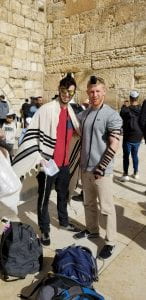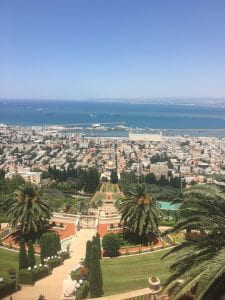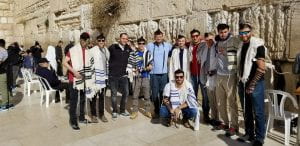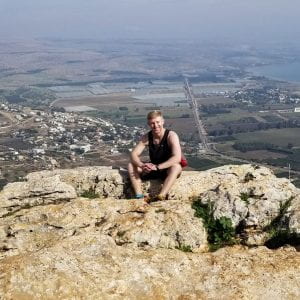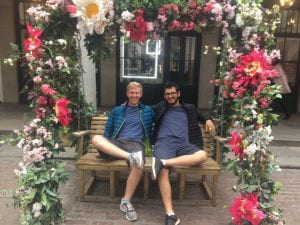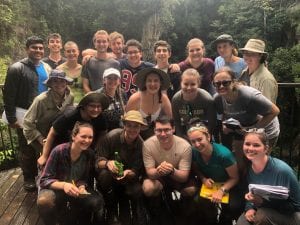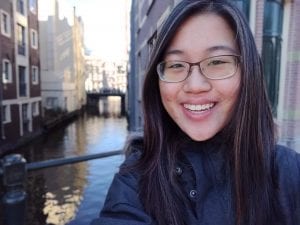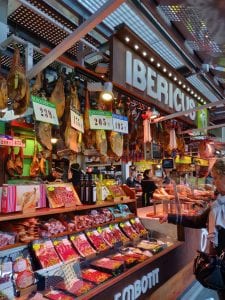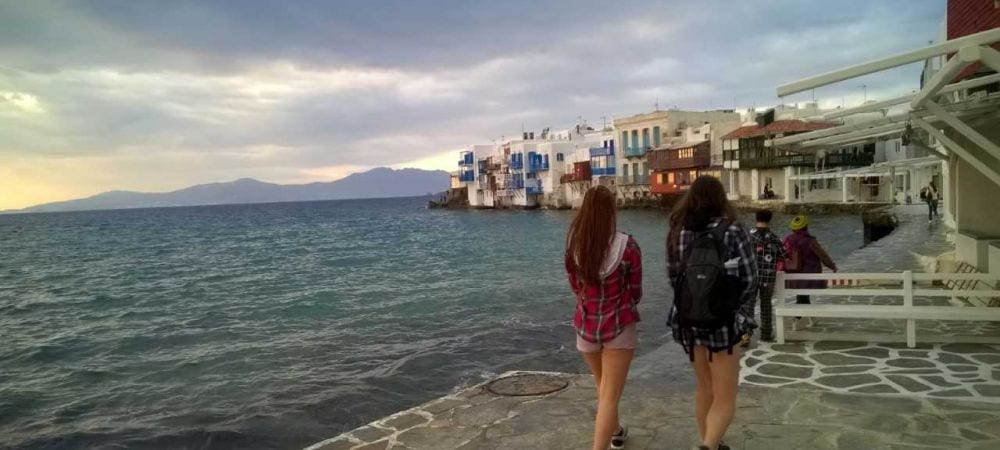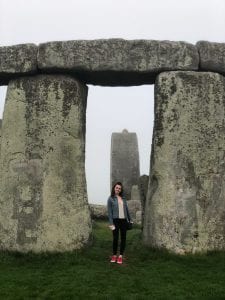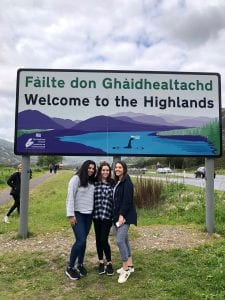Growing Faith & Enlightenment: A Spiritual Journey in Israel
Last spring, I had the opportunity to study abroad at Hebrew University’s Rothberg International School in Jerusalem, Israel. There were so many things that I loved about living in Israel for 5 months: my mouth waters when I think about the scrumptious meals I ate, I miss the convenience of jumping on the light rail and heading to Yehuda Market, I cherish every moment spent with my Israeli relatives in Jerusalem or traveling across the minuscule nation to visit my Israeli friends, and I am thankful for the incredible friendships I made throughout my time on the program. These aspects make me grateful for my time spent in Israel and yearn to go back soon, but they also helped me discover the deeper meaning that I was looking for. Studying abroad fostered my personal and spiritual growth in a way that was only possible because I chose to go study in Israel.
Choosing Israel
The decision to study in Jerusalem was not always obvious or facile for me. I decided to study abroad in Israel based on a spontaneous gut-feeling. As a Jewish student at Southern Methodist University, part of a small community of Jews, I wanted to experience something greater and connect deeper to my faith and culture. After breaking my 24-hour fast on Yom Kippur in October 2017, the holiest day of the year in Judaism, I had an epiphany that studying in Israel the next semester was the path that I needed to pursue. By November, I had committed to go but was frightfully uncertain about my decision. I knew deep down that studying abroad in Israel would provide me with the experience I longed for, but I also felt like a deer in headlights.
Fortunately, my IFSA advisor, Kerry Uniyal, was very helpful as I prepared to go. While I remained slightly nervous throughout the process, Kerry, IFSA, and SMU Abroad made sure I was ready to venture off into the unknown. They answered any concerns or questions I had, and my family was also very supportive as I prepared to live abroad. My pre-departure anxiety would quickly turn into excitement and enthusiasm.
Adapting to Israeli Life
I was sure that I had made the right choice almost the instant I entered Israel. My jitters were flushed away by the friendliness of the people I met right away and the euphoric excitement of being in this incredible country. Within the first week or so, I had already made friendships that still exist today with peers who had come to Israel for the same purpose as me. Although it may be difficult to comprehend without experiencing what I experienced, in a place so foreign to me I felt right at home.
I did not realize it at the time, but my personal growth had already commenced. I had opened myself up to new experiences, was learning more than I could have imagined, and quickly adapted to life in Jerusalem. My faith and spirituality blossomed as a result. I studied Torah with religious Israelis, debated with Jewish peers from all over the world, prayed at the holiest sites, and participated in interfaith dialogue with American Christians, Palestinians, and many members of Israel’s countless minority religious communities.
At home, I had been more close-minded. I constantly searched for opportunities to build my faith and solidify my Jewish identity, but living in a secular Christian society and attending Southern Methodist University did not always make this easy. I was involved with Jewish life on campus and in my community, yet seeing life from the other side was something that I thought would help me in the long term as well as provide short term spiritual insight. However, this phenomenon would not just occur to me.
Societal Differences Lead to Growth
In Israel, I belonged to the majority in society for the first time ever. This was quite the contrast from SMU and all of the places I had grown up in. It provided me with ample opportunity to delve deeper into my faith and gain greater knowledge about my religion, my culture, and myself.
Yet I was not the only one. On the contrary, everyone grew in a meaningful way and left the country filled with newfound knowledge. Some learned more about faith and spirituality, some more about their values and life goals, some about life and people in general, and some about things they had never thought about beforehand. My peers and I grew together, and Israel fostered our development. Just as being part of the majority changed me, my many non-Jewish peers at the Rothberg International School were heavily influenced by belonging to the minority for the first time in their lives.
Taking Advantage of Opportunities
IFSA and the Rothberg International School provided many of these opportunities for me. IFSA took us on singular trips to places that I would not have had access to otherwise. We met incredible people and explored all corners of Israel. Rothberg also had trips and weekly events to mingle with peers and try new things. It seemed that there were opportunities around every corner. Nevertheless, taking advantage of opportunities abroad is a personal responsibility. No IFSA, Rothberg, or other group’s trips were mandatory; rather, every person must choose to make the most of their time abroad. I had unforgettable adventures because I wanted to explore, desired to learn more, and refused to waste the relatively short time I had in Israel. I pursued the groups, events, and experiences that appealed to me, and it made my time abroad worthwhile.
Highlights
Some specific highlights of my faith journey abroad were davening at the Western Wall, electing to begin keeping Kosher, spending Passover at a Chabad (an Orthodox religious sect of Judaism) hostel in the holy city of Tzfat, attending Hillel and studying Torah every Monday night after befriending a rabbi, spending Shabbat all over Israel, and building lasting relationships with people from every continent. My five months in Israel were enlightening to a level that is indescribable.
Returning Home
The most difficult part of any journey, ironically, can be the return home. While many of the challenges I faced before going abroad still exist, I am different. My attitude towards people, hardships, and society has evolved and the skills I adopted in Israel have translated into life back in the U.S. Yes there are times when I miss being in Israel, but my experience has changed me for the better. I have maintained the religious and cultural practices I began in Jerusalem, such as keeping Kosher. I am continuing on my faith journey, taking advantage of every opportunity I get. Life in the states may differ in ways that I wish it did not, but I have learned to live as my best self and that is what truly matters.
I chose to study in Israel because somewhere deep down I felt lost and thought Israel was the place that could answer my deepest queries. While in Israel, it did not take me long to realize that what was happening to me would change me forever. I would not possess the knowledge I have today if I had cowered out of going on this incredible program. Living in such an amazing place provided the environment and the resources for me to embark on a spiritual journey, which I took advantage of and grew tremendously. My only hope is that driven, like-minded individuals will make the same choice to broaden their horizons, grow in faith, and have a fun and life-altering experience studying abroad in Israel or a different place that best suits them. Studying abroad is essential to the college experience, and I will always remember it as the most important decision I made in college.
Jordan Williams is a Finance & Religious Studies double major at Southern Methodist University. He studied abroad with IFSA at the Rothberg International School of Hebrew University in Jerusalem, Israel in Spring 2018. He is one of the 2018-19 SMU Abroad Peer Advisors and editor of The Globetrotter newsletter and Mustangs on the Move blog.


